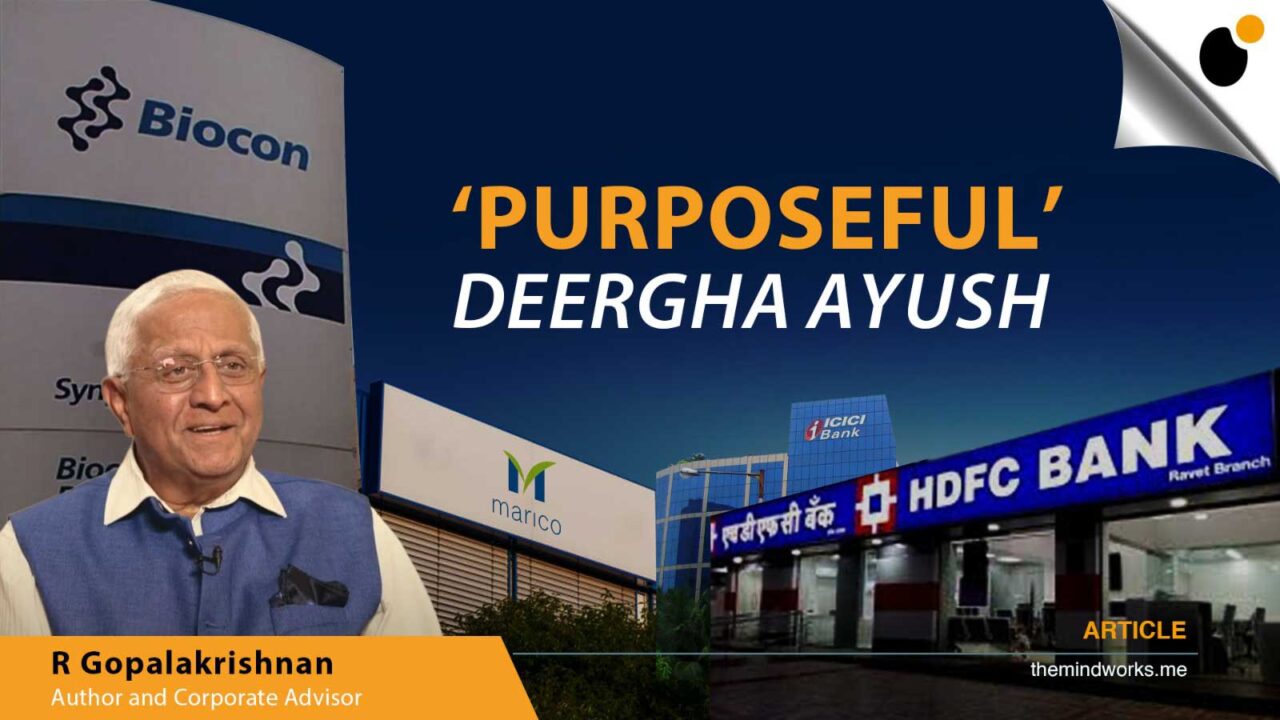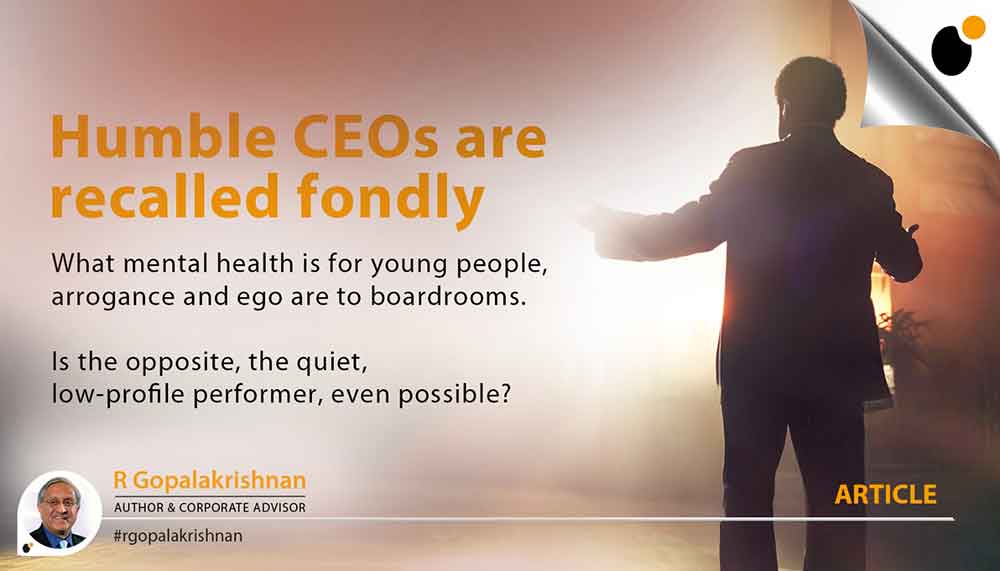18th December 2019
R. Gopalakrishnan*
Email: rgopal@themindworks.me
(*The author is a corporate advisor and Distinguished Professor of IIT Kharagpur. During his career, he was Director of Tata Sons and Vice Chairman of Hindustan Unilever).
In this last column of 2019, I explore the reality that public scrutiny is tough but valuable. A CEO in a listed company bears this as an additional responsibility compared to an unlisted company CEO. Start-ups are relearning an eternal wisdom: that revenue minus costs must generate a cash flow within some reasonable time. After the We Work IPO fiasco in early October, investors woke up. It beats me why it took so much time and torture to implement expensive alternatives to build an entrepreneurial business. I reckon wisdom arrives after trying all alternatives!
On 7th October, one media columnist rhetorically wrote about Indian start-ups, “…. These start-ups, with boards that are useless, cut corners to rise to the top and bomb at the public market litmus test…. Are we looking at a world better off without Softbank and the Unicorns?” On the same date, another columnist wrote, “Many Indian unicorns have pursued a growth-at-all cost strategy….and are nowhere near attaining profitability…many of these unicorns are not exitable.” On 10th Nov, the Business Standard, in an editorial commented, “…It is important for the survival of the ecosystem that more and more start-ups become profitable….it will make the start-up ecosystem a real driver of economic growth.” After the We Work debacle, pundits even wondered whether Masayoshi Son is losing his magic touch.
Truth be told, Masa is not the point; abdication of common sense is the point. Pakistani poet, Maulana Tariq Jamal, wisely wrote, “Tum idhar udhar kin na kar baat, Yeh batao ki kafila kyun luta, Mujhe Rehjanon se gila nahin, Teri rehbari ka sawal hai.” (Don’t obfuscate, tell me why the caravan got looted, I am not concerned about the robber, I am concerned about your caretaker-ship.”)
An HBR article (Building a startup that will last, 8th July 2019, Hemant Taneja and Ken Chenault) recognized four foundational values for start-ups to build sustainable companies: (i) articulate a value framework based on societal impact (ii) demonstrate the ability to execute repeatedly (iii) move beyond founder-driven decisions to scalable leadership and (iv) design the company for endurance. If we could imagine a panel discussion on how to create a sustainable business among Jamsetji Tata, Ghanshyamdas Birla, Jamnalal Bajaj, Andrew Carnegie and William Hesketh Lever, would they not say the same sort of things?
IPO-worthiness is a litmus test for any company. The most successful Indian start-up during this millennium is Tata Consultancy Services. In 2004, its IPO valued TCS at an enterprise valuation of about $ 2 billion. Looking to the company’s present valuation of about $ 110 billion, it must represent the very best. The then CEO, S. Ramadorai, recounts in his book, The TCS story, how complex and difficult it was to design TCS to be IPO-worthy, “At that time TCS was still an unsung story…..faced the challenge of how to overcome perceptions compared to competitors…..we faced the task of revealing the real TCS to the world….later it appeared that a beautiful girl had unveiled herself…..we were proud that Infosys was considered a benchmark in governance and transparency.”
The greatest of business wisdom is encapsulated in this example—an inherent humility, admiration for a competitor, facing up to the reality of the public market, recognizing that execution is the key and, finally, redesigning the entire organization to be responsive and transparent. India and the world need listed companies with public accountability. It is true that some listed companies fail the tests of disclosure and governance, but that is all the more the reason for governance and transparency.
The toughness of transparency and scrutiny applies also in the public governance because perception determines credibility and trust. Recently, Indian leaders appealed to the people to trust them about the Citizens’ Amendment Bill (CAB). Many citizens are confounded and bewildered by the backstory of events. Every event had a logic, perhaps even a sensible one, but consider that past events have serially caused disturbance or despair, one after the other. That is what the public recalls.
On the political front—lynchings, Ayodhya, triple talaq, Kashmir and now the CAB. On the economic front–hazy outcomes of demonetization, the continuous amendments to GST (over 100 in the last two years), shifting rules in IBC. Even the announcements on electric vehicles and the implementation Fastag have caused confusion and anguish.
Without doubt such complex tasks take time, but then, credibility and trust also takes time: it emanates from within people, not by external blandishments.
A very happy 2020 to readers.



